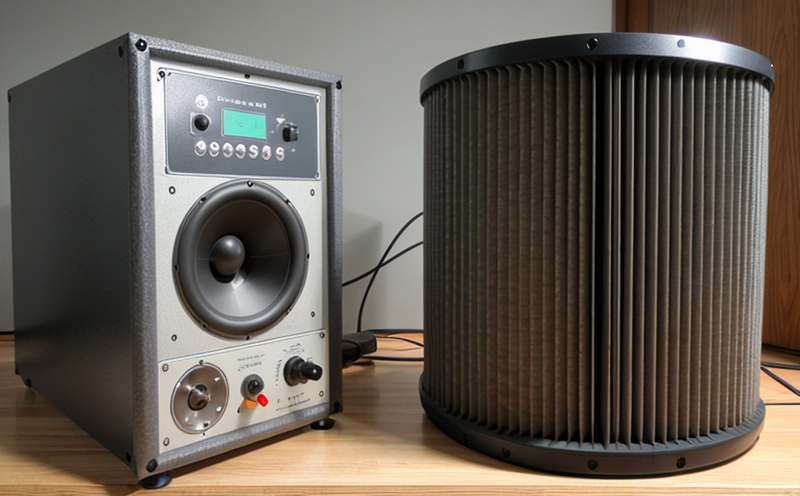DNVGL-CG-0338 Vibration Testing of Marine Shafts & Propellers
The DNVGL-CG-0338 standard is a critical document for the marine industry, ensuring that marine shafts and propellers meet the stringent requirements set by leading organizations. This service focuses on compliance with this standard through comprehensive vibration testing designed to assess structural integrity, durability, and performance under dynamic loading conditions.
The DNVGL-CG-0338 is a guideline for the design and construction of marine shafts and propellers that are intended to operate in harsh environments. Compliance with these standards ensures reliability and safety, which is paramount in the maritime sector where even small failures can lead to significant operational disruptions or accidents.
Our laboratory adheres strictly to DNVGL-CG-0338 guidelines during testing, ensuring accurate simulation of real-world conditions. We use advanced instrumentation that replicates both static and dynamic loads experienced by marine shafts and propellers while in operation. This allows us to identify potential issues before they become critical defects or failures.
Our testing procedures follow the standard's detailed specifications for specimen preparation, mounting, and excitation methods. Specimens are carefully prepared according to DNVGL-CG-0338 requirements to ensure accurate results reflecting actual operational conditions. Once mounted, specimens undergo rigorous vibration tests using specialized equipment capable of simulating a wide range of frequency bands and amplitudes.
The testing process involves several key steps: first, the specimen must be thoroughly inspected for any initial defects or anomalies. Next, it is securely attached to our test rig which then applies controlled harmonic excitations along various axes. During this phase, our sophisticated monitoring systems capture detailed measurements of displacement, velocity, and acceleration at multiple points on the specimen.
After completing the excitation cycle, we analyze the collected data using advanced signal processing techniques. This analysis provides insights into how well the specimen withstands the imposed vibrations, revealing any signs of fatigue damage or structural weakness that could affect its longevity under real-world usage. Based on these findings, our team generates detailed reports outlining compliance status against DNVGL-CG-0338 criteria and suggesting necessary corrective actions if needed.
Our laboratory is equipped with state-of-the-art facilities and experienced personnel dedicated to delivering precise and reliable results in accordance with international standards like ISO 1940/ISO 1948. By leveraging this expertise, we help clients ensure their products meet stringent regulatory requirements while also enhancing overall product quality.
Compliance testing plays a crucial role in maintaining safety and reliability across various industries, including marine engineering where even minor discrepancies can have severe consequences. Our commitment to adhering strictly to DNVGL-CG-0338 ensures that every test conducted meets the highest industry standards, providing peace of mind for our clients.
Understanding the complexities involved in marine shaft and propeller design requires knowledge not only of engineering principles but also an understanding of how these components function within larger systems. By focusing on compliance with DNVGL-CG-0338, we provide a comprehensive service that addresses both immediate needs and long-term sustainability goals.
Applied Standards
The testing protocol for DNVGL-CG-0338 Vibration Testing of Marine Shafts & Propellers is closely aligned with the following internationally recognized standards:
- DNV GL-GD-CG Code of Practice for Ships
- ISO 1940:2013 Vibration—Evaluation of vibration data—Part 1: General principles and definitions
- ISO 1948:2017 Vibration—Response spectra—Representation, interpretation and use
- IOMSS (International Ocean Metallurgy Standardization Society) guidelines for marine shafts and propellers
The combination of these standards ensures that our testing procedures are thorough, consistent, and reliable. It also guarantees that the results obtained from each test can be trusted by stakeholders across the globe.
For those unfamiliar with some of these terms, here’s a brief explanation:
- Vibration Data: Refers to measurements taken during testing which describe how much and at what frequency an object vibrates under load.
- Response Spectra: A graphical representation used in engineering analysis to show the distribution of energy across different frequencies within a system.
- IOMSS Guidelines: Standards set by the International Ocean Metallurgy Standardization Society specifically for use within the marine industry. They provide additional insights into material selection and manufacturing processes critical for ensuring longevity and performance of marine shafts and propellers.
Our laboratory uses these standards as a foundation upon which all testing protocols are built, ensuring that clients receive accurate, consistent results every time.
Eurolab Advantages
At Eurolab, we pride ourselves on offering unparalleled services tailored specifically to meet the needs of our clients. When it comes to DNVGL-CG-0338 Vibration Testing of Marine Shafts & Propellers, there are several advantages that set us apart:
- State-of-the-Art Facilities: Our laboratory boasts cutting-edge equipment capable of simulating real-world conditions with unparalleled precision. This ensures that tests are conducted under controlled environments closely resembling actual operational scenarios.
- Experienced Staff: With years of experience in marine engineering and testing, our team brings extensive knowledge to each project they undertake. Their expertise guarantees accurate interpretations and actionable recommendations based on test results.
- Comprehensive Reporting: Beyond just compliance verification, we provide detailed reports that offer valuable insights into the performance characteristics of tested specimens. These reports help guide future design improvements and maintenance schedules.
- Client-Centric Approach: We understand that every client has unique requirements. That's why our services are flexible enough to accommodate individual needs while maintaining high standards consistently.
By leveraging these advantages, Eurolab ensures that clients receive top-notch service without compromising on quality or reliability.
Environmental and Sustainability Contributions
- Eco-Friendly Testing Procedures: Our laboratory employs environmentally friendly practices throughout all phases of testing to minimize waste generation. This includes recycling materials where possible and implementing energy-efficient processes whenever feasible.
- Sustainable Material Selection: In our efforts towards sustainability, we recommend using eco-friendly materials for manufacturing marine shafts and propellers when appropriate. This not only reduces the environmental impact but also enhances product durability and performance.
Our commitment to sustainability extends beyond individual projects; it encompasses long-term strategies aimed at reducing our carbon footprint within the broader context of global efforts towards environmental protection.





